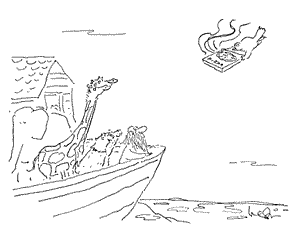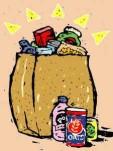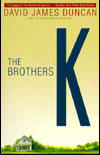Going on a little farther, Jesus saw James the son of Zebedee and John his brother, who were in their boat mending the nets. And immediately he called them; and they left their father Zebedee in the boat with the hired servants, and followed him. (Mk 1.19-20)
Yesterday we had a cook out for Labor Day, with lots of people gathered around the grill, talking and laughing. Ribs and chicken and brats. A feast for the poor.
Most of us unemployed, too. Actually, Labor Day was not mentioned. It was mentioned at mass though, when the priest reminded us that Jesus was a carpenter and connected his work with the work of the burdened laborers throughout the world, who have to work like slaves just to survive.
But should we assume Jesus worked like that? Was he dependent on his carpentry for his survival? I think it's worth noticing that he walked away from his carpentry, just as James and John walked away from their nets (and the other "hired servants"). They were not dependent on that income or slaves to their trade. And later Jesus even preached, "Do not labor for the food which perishes, but for the food which endures to eternal life, which the Son of man will give to you." (Jn 6.27) Both he and his disciples showed what this looked like, and how God supported them in this work.

Yesterday I also thought of a scene from
The Passion of the Christ. Mary comes out while Jesus is making a table and asks him about its unusual design. "It's for a rich man," Jesus (the actor) replies. I'm not sure if there was a bit of mockery in his voice, or resignation. But in either case I find it hard to imagine Jesus actually working in that way.
Jesus did serve the rich during his ministry, but it was always serving them with a warning: "Woe to you who are rich!" (Lk 6.24) What would suggest that Jesus would sell his labor to the wealthy so that they could better adorn their homes? The rest of the world bows to those with money and obeys the will of the one paying the bills. But when did Jesus ever do or teach that? His relationship to the wealthy was one of rebuke, calling them to change the way they live.
I was disappointed to hear that several of the former volunteers here are now employees of the wealthy, manicuring their lawns or teaching their children. And I objected at Reba Place when they opened an Amish furniture store which sold items only the rich could afford (the store is now closing).
How do we choose who we labor for? Is it for those who can pay us the best wage? Or those who need our help the most?














 subscribe
subscribe